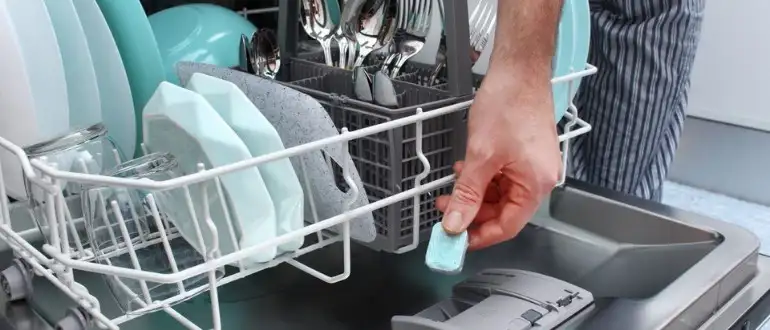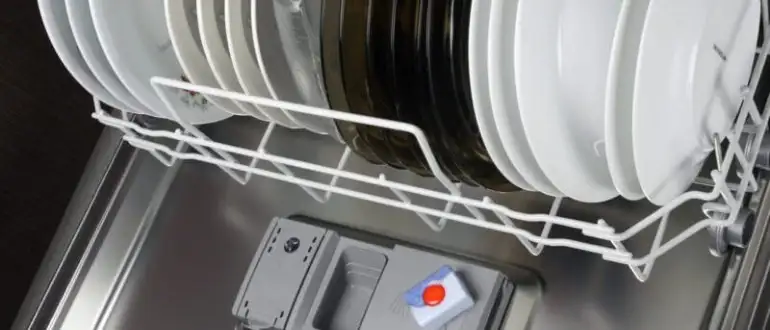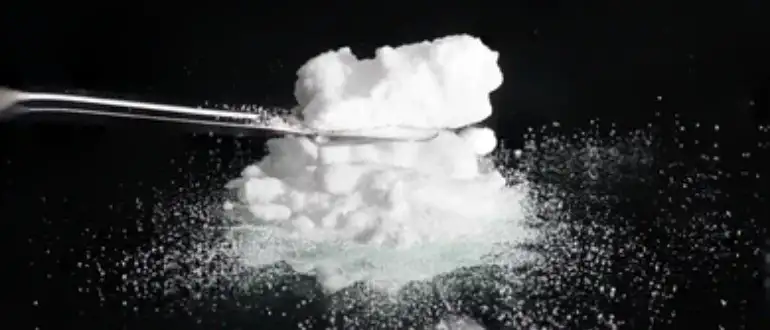Detergent Pods are ultra-concentrated water-soluble laundry detergent pouches. Many people ask, “are dishwasher pods bad for the environment?”
Every dishwasher use dishwasher pods for their convenience. However, they must know the effects of these detergents on our environment.
This article will answer the question as well as describe the environmental effects of dishwasher pods.
Are Dishwasher Pods Bad For The Environment?
Yes. Dishwasher pods can be harmful to the environment. This is because they may contain potential pollutants within the casing.
When these substances are released in large quantities through the drainage system, they endanger aquatic and plant life.

Bad Effects Of Dishwasher Pods On The Environment
The PVA Lining Is A Threat To The Marine Environment
According to the opinions of various researchers, these casings of dishwasher pods that resemble plastic are never completely biodegradable.
As a result, the pods have the potential to affect the ecosystem as the water makes its way from the drain to the sea without first going through any wastewater treatment facilities. Among the dangers are:
- obstructed the normal cycle of plant life
- The abnormally low levels of oxygen compared to those of carbon dioxide in the atmosphere.
- accumulation in landfills if it is unable to be processed by water treatment plants
- Negative interactions between water pollutants and aquatic life can have devastating effects.
Dishwasher pods contribute to the problem of plastic pollution due to the reasons listed above
The Chemicals In Dishwasher Pods Pollute The Environment Badly

While it’s true that pods are more environmentally friendly than powdered products, there are a few things you should keep in mind before making the switch.
The majority of products include enzymes that break down grease, as well as bleaching agents and surfactants.
Dishes that are greasy and dirty can be cleaned more easily by the combined biochemical properties of these substances.
In addition to these fundamental chemicals, dishwasher pods may also include synthetic preservatives, dyes, fragrances, binding agents, solvents, or corrosive inhibitors.
There are dishwasher pods available that contain trace amounts of nitrogen and phosphorus as well.
The vast majority of these components are bad for the environment. They are the cause of pollution in the oceans, seas, and air.
The Build-Up In The Dishwasher Can Have Negative Effects On Your Machines And Homely Environment

When you use dishwasher pods to clean your dishes, you probably don’t give much thought to the fact that the capsules leave behind chemicals that are still active in the dishwasher.
If you don’t perform routine maintenance, the build-up will continue to worsen until it adversely affects your dishwasher as well as your home atmosphere.
The toxic substances can adhere to the surface of your dishes, which will inevitably result in the contamination of your food and the air around you.
In addition to this, the accumulation of chemical residue can result in your dishwasher having to work harder. That will result in a higher amount of electricity consumption.
Because of this, there is a chance that your utility bills will skyrocket, and there is also a chance that your carbon footprint will significantly expand.
You can prevent this from happening by regularly cleaning your dishwasher machine.
To remove the chemical residue from areas of the machine that are difficult to access, scrub the area with a toothbrush or another suitable cleaning tool that is conveniently sized.
Substances For Which Dishwasher Pods Are Bad For The Environment

Phosphates
Phosphates, which can be found in the wastewater of your dishwasher particularly harmful to the marine environment when released into the water.
They cause algae blooms, which deprive marine plants and animals of oxygen and can kill them.
Bleach
Bleach is frequently used for cleaning and removing odor, but its fumes can cause respiratory distress, and if it comes into contact with the skin or eyes, it can cause extremely caustic burns.
This is true for both humans and other forms of marine life.
Formaldehyde
The Environmental Protection Agency has placed formaldehyde in the category of class B1 carcinogens for its potential to cause cancer in humans.
This chemical is typically associated with the process of embalming dead bodies.
This indicates that it has been associated with an increased likelihood of developing cancer.
It has been established that this condition impairs reproduction in marine ecosystems.
Ammonium Sulphate

Ammonium sulfate and ammonium quaternary sanitizers are abrasive and corrosive forms of harsh cleaning agents.
Even with only a small amount of exposure, they can cause damage to the lungs, skin, and eyes of both humans and marine life.
Dioxane
It is quite possible that dioxane, also known as 1,4-dioxane, diethylene dioxide, diethylene ether, and dioxin, is one of the worst additives.
Dioxane is another substance that has been shown to cause cancer, and it also has the potential to catch fire.
Marine animals can suffer damage to their eyes, central nervous systems, and skin as well as scales when they are exposed to marine environments.
FAQs About Dishwasher Pods
Are Dishwasher Pods Eco-Friendly?
Unfortunately, many dishwasher pods are not eco-friendly because they contain chemicals that can harm the environment.
What Are The Elements Dishwasher Pods Are Made Of?
Corrosion inhibitors
Preservatives
binding agents like citric acid
solvents like glycerine
bleaching agents like sodium percarbonate
artificial dyes and fragrances
Is The Plastic In Dishwasher Pods Making The Environment Worse?
Yes. Because of being wrapped in plastic, dishwasher pods are harming the environment.
Even though the plastic dissolves in water, it is not good for the environment because it is made by refining crude oil which mixes into the water system and pollutes it.
Is There Microplastic In Dishwasher Pods?
Microplastics are small pieces of plastic or microbeads that can be found in many cleaning and beauty products.
When they get into the ocean through drains, they may harm aquatic life.
It’s not unusual for detergents like dishwasher tablets to contain microplastic, especially since microplastics are used as a “scrubbing agent” to help get rid of dirt and debris from dishes and other surfaces.
So, it’s safe to say that a lot of dishwasher tablets do contain microplastics, but it depends on the brand, so we can’t really say that all dishwasher tablets contain microplastics.
Are Dishwashing Pods Toxic?
Some of the things in dishwashing pods could be dangerous or poisonous to people.
For example, artificial fragrances can cause irritation and damage to the skin and lungs, and some of the pigments used can cause cancer or damage to certain organs because they contain things like arsenic, lead, and mercury.
But most of the time, these ingredients won’t hurt people as long as the pods are taken as directed.
Other ingredients, like enzymes, citric acid, sodium silicate, sodium carbonate, and sodium bicarbonate, don’t pose much or any danger to human health.
Final Thoughts
Now you know the answer to the question, “ are dishwasher pods bad for the environment? “the pods contain several toxic chemicals that can harm your family and the environment around us.
Frequent use and exposure can prove detrimental in the long run. Therefore, we need to look for other sustainable ways to wash dishes or reduce our intake of these pods.
